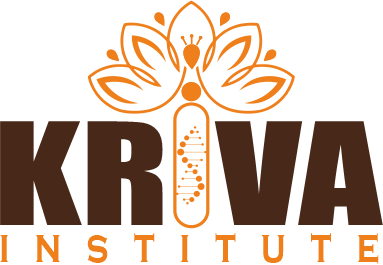The field of clinical cosmetology has seen tremendous growth in recent years, offering promising career opportunities for those passionate about beauty, skincare, and wellness. With the rise in demand for cosmetic procedures and the increasing awareness of skin health, the Scope of Career in Clinical Cosmetology is expanding at an unprecedented rate. This blog will delve into the reasons behind this expansion, discuss the various career paths available, and provide insights into why now is an excellent time to pursue a career in this dynamic field. Let's explore how educational institutions are preparing the next generation of clinical cosmetologists to meet this growing demand.
What is Clinical Cosmetology?
The Scope of Career in Clinical Cosmetology refers to the science of enhancing skin health and appearance through various medical and non-medical procedures. Unlike traditional cosmetology, which focuses on beauty treatments like hairdressing and makeup application, clinical cosmetology combines aesthetic practices with medical expertise. Clinical cosmetologists are trained to perform advanced procedures such as chemical peels, laser treatments, botox injections, and other dermatological interventions. They work closely with dermatologists, plastic surgeons, and other healthcare professionals to provide comprehensive skincare solutions.
Factors Driving the Expansion of Career Scope in Clinical Cosmetology
1. Increased Awareness and Demand for Cosmetic Procedures
In recent years, there has been a significant shift in how people perceive cosmetic procedures. Once considered a luxury reserved for the wealthy, these procedures have become more accessible and widely accepted across different age groups and social strata. The desire to maintain a youthful appearance and improve skin health has driven the demand for clinical cosmetologists.
According to a report by the American Society of Plastic Surgeons, there was a 163% increase in non-surgical cosmetic procedures between 2000 and 2020. This surge in demand has opened up numerous career opportunities for clinical cosmetologists, particularly in urban areas where such services are in high demand.
2. Technological Advancements in Skincare
The rapid advancement in skincare technology is another factor contributing to the expanding scope of clinical cosmetology. Innovations in laser treatments, radiofrequency devices, and injectable products have revolutionized the field, offering safer, more effective solutions for various skin concerns. Clinical cosmetologists need to stay updated with these technologies, making continuous education and training essential.

3. Growing Emphasis on Holistic Skincare
Modern consumers are increasingly seeking holistic skincare solutions that address both cosmetic and medical concerns. This trend has led to a rise in demand for professionals who can offer comprehensive skincare treatments that combine aesthetic appeal with clinical efficacy. Clinical cosmetologists are uniquely positioned to meet this demand, as they possess the knowledge and skills to address a wide range of skin issues.
4. Rise in Dermatological Issues
The prevalence of skin conditions such as acne, hyperpigmentation, and premature aging has increased due to various factors, including pollution, stress, and unhealthy lifestyles. As more people seek professional help to manage these conditions, the demand for skilled clinical cosmetologists has grown.
Research shows that nearly 85% of people between the ages of 12 and 24 experience at least minor acne, with many continuing to suffer into adulthood. This statistic highlights the need for clinical cosmetologists who can provide targeted treatments to address these common skin concerns.
5. Increased Focus on Anti-Aging Treatments
The global anti-aging market is projected to reach $271 billion by 2024, driven by an aging population and a growing desire to maintain youthful skin. Anti-aging treatments such as botox, fillers, and laser resurfacing are among the most sought-after procedures in clinical cosmetology. As a result, there is a rising demand for professionals trained in these specialized techniques.
Career Opportunities in Clinical Cosmetology
The expanding scope of clinical cosmetology has opened up a wide range of career opportunities for those entering the field. Here are some of the most popular career paths:
1. Clinical Cosmetologist
As a clinical cosmetologist, you will perform a variety of non-surgical cosmetic procedures aimed at improving the appearance and health of the skin. This role requires a deep understanding of skin physiology, as well as proficiency in using advanced cosmetic technologies.
2. Aesthetic Consultant
Aesthetic consultants work closely with clients to develop personalized skincare plans. They assess the client’s skin type, recommend appropriate treatments, and provide guidance on skincare products. This role is ideal for those who enjoy interacting with clients and have a keen eye for detail.
3. Laser Specialist
Laser specialists are trained to perform various laser-based treatments, including hair removal, skin resurfacing, and pigmentation correction. This highly specialized role requires extensive training in laser technology and safety protocols.
4. Medical Esthetician
Medical estheticians work in clinical settings alongside dermatologists and plastic surgeons. They assist with pre-and post-operative care, perform advanced facial treatments, and provide patient education on skincare.
5. Cosmetic Dermatology Practitioner
This role involves working in dermatology clinics, where practitioners provide cosmetic treatments such as chemical peels, microdermabrasion, and injectables. It requires a strong background in dermatology and an understanding of the latest cosmetic procedures.

Why Choose the Kriva Institute for Your Career in Clinical Cosmetology?
The Kriva Institute is at the forefront of clinical cosmetology education, offering comprehensive training programs designed to equip students with the skills and knowledge needed to succeed in this rapidly growing field. Here’s why Kriva Institute is the ideal choice for aspiring clinical cosmetologists:
1. Cutting-Edge Curriculum
The Kriva Institute offers a curriculum that is constantly updated to reflect the latest advancements in skincare technology and treatment methodologies. Students receive hands-on training in state-of-the-art facilities, ensuring they are well-prepared to enter the workforce.
2. Experienced Faculty
The faculty at Kriva Institute comprises industry experts with years of experience in clinical cosmetology. Their expertise and mentorship provide students with invaluable insights into the field and help them build successful careers.
3. Comprehensive Career Support
Kriva Institute offers extensive career support services, including job placement assistance, resume building, and interview preparation. The institute has strong industry connections, which can help students secure internships and job opportunities in top clinics and skincare centers.
4. Focus on Continuous Learning
Clinical cosmetology is a field that requires continuous learning to stay ahead of the curve. Kriva Institute emphasizes the importance of lifelong learning, offering advanced courses and workshops to help professionals keep their skills sharp and up-to-date.
Conclusion
The scope of a career in clinical cosmetology is expanding rapidly, driven by increased demand for cosmetic procedures, technological advancements, and a growing emphasis on holistic skincare. As the industry continues to evolve, there is a growing need for skilled professionals who can deliver high-quality treatments that meet the needs of today’s consumers.

